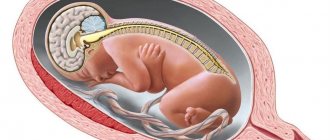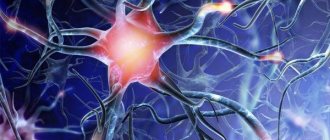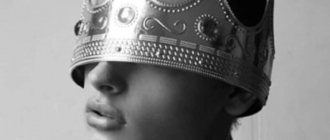We often think about things that make us uncomfortable, such as losses and trauma. But sometimes it seems that we lack knowledge about what makes us happy and gives us strength. One of these resources is pride.
What associations does this word evoke?
Here are some answers: achievements, pride in a child, expansion, involvement in something bigger, profile of Anna Akhmatova, the film "Pride and Prejudice", a completed project, a goal achieved, approval from others, squared shoulders. But there are others: mortal sin, narcissism, arrogance, vanity, superiority over others, contempt.
What do dictionaries tell us? In them we will see three main definitions:
- self-esteem;
- satisfaction;
- arrogance is an excessively high opinion of oneself.
Apparently, we should distinguish between genuine pride and arrogance. And the line here is really thin.
Crown of Virtue
Psychology has only recently turned to the study of pride - until recently it was not considered a basic feeling, despite the fact that Aristotle called it “the crown of virtue.”
In 2005-2006, psychologist Jessica Tracy from the University of British Columbia (Canada) made pride the subject of her research. Among other things, she found out that it is an evolutionary emotion. This means that all people experience it the same way, regardless of ethnicity and living conditions.
Both in the village and in the metropolis, pride is described in the same way; everywhere its manifestation is straightened shoulders, a raised chin, a slight smile. Even those who were blind from birth - that is, those who could not see someone else's facial expression and copy it - in moments of pride look exactly the same as other people.
Jessica Tracy also found that pride does not equal joy or happiness. This is a subjective assessment of one's own social status.
Summarizing
So, first of all, pride is the negative side of your personality. And it should not be confused with pride, which is an open positive feeling. Almost every world religion considers pride, if not a mortal sin, then one of the most important and serious.
Pride is the main element, the catalyst that sets in motion the entire chain of consequences, giving rise to other sins. Getting rid of pride will bring positive spiritual fruits not only to a believer, but also to those who do not build their lives according to the commandments.
Well, and most importantly, say thank you. This is not only polite, but also healing for the soul.
Efforts and achievements
I suggest you conduct a small experiment right now. Read the two sentences slowly and pay attention to your feelings.
1. Well done for reading this article. Remember what kind of internal response this sentence evokes in you, and take a short pause before reading the second one. Done? Then let's move on.
2. I'm proud of you. You took the time to read a serious article and learn something new about yourself. Notice how you feel now.
Compare two experiences - the first and the second.
When I conduct this little experiment in the classroom (in this case I usually say “You’re great for getting together” and “I’m proud of you - you didn’t go to have fun, but came to a lecture/seminar to learn”), then in the first case they say usually, the pleasure was quick and there was some embarrassment or displeasure from the assessment (“well done”), while in the second case the pleasure was deeper, because there was recognition of merit, an assessment of the efforts made.
Advice from psychologists
To help with the fight against pride, many psychologists advise to humble yourself and understand that a person is not ideal, he must constantly improve and become better.
One of the main steps on the path to getting rid of pride is to understand the goal with a detailed description of the losses that pride has brought you and the gains that you will have without it.
The next step is to learn how to communicate two-way with people. Hear them. Let them describe you. And you, in turn, will adequately evaluate this portrait and accept it. This is how you appear to others.
Psychologists also recommend the same work that you considered beneath your dignity to do. Only by plunging into another reality will you be able to compare and understand whether the edges of your world are ideal.
And, of course, say thank you. Even psychologists advise this.
"Who will praise me best..."
It may be helpful for parents to note that the same thing happens when we praise a child. If we evaluate him by saying “you're great,” we put ourselves above him. But when we notice his efforts, we give him a reason to be proud of himself.
However, this applies not only to parents, but also to friends. It’s one thing to say to a friend: “You did great,” and another thing to say: “I see how hard you tried.”
Translated materials often talk about pride being the result of “socially praiseworthy” actions. However, it seems to me that this is due to the difficulty of adequate translation.
I would say that we are talking about those actions that lead to social recognition and, accordingly, to the formation of a greater sense of belonging to one or another part of the community. And about how we use our abilities, and about the efforts we make to realize them. And a lot depends on the context. An adult is unlikely to be proud of the way he ties his shoelaces, but for a child it is an achievement.
How to get rid of pride
There are many opportunities in the life of any person that will answer the question: how to get rid of pride?
First of all, this is an attempt to understand the interlocutor, to hear him, to “get into his shoes,” to try to think like him.
A proud man, accustomed to his superior position, will be able to change his mind by doing the work that he considered unworthy of him. So, for example, wash the entrance or pick up trash after someone.
While appreciating your ideal life, trying to plunge into the lives of less fortunate people will also help you get rid of the veil of pride. Look at how a financially poorer person or people with disabilities live. Will they be able to fulfill your dogmas dictated by pride?
A simple “thank you”, sincere gratitude in the store to the seller who served you; the person who gave the item you dropped; to the chef for an excellent dessert.
All these are simple methods, opportunities that exist in everyone’s life.
A question of motivation
Among the experiments conducted by Jessica Tracy was this: in two groups, volunteers were asked to solve problems on spatial perception. Then the first group was given the test results, they were all the same: 94 points. The second group was given the same results, but with the words: “This is an amazing result, few people manage to do tasks so well.”
After this, the participants were asked to continue testing, and the researchers measured the effort they put into solving the problems. Those who heard words of recognition put in 40% more effort than those who simply received a high result. Conclusion: Pride motivates us to put effort into something.
What are the consequences
Will your life be better without pride? What about the lives of those around you? Yes, if you are a believer, and pride is a mortal sin. And the highest reward will be the opportunity to help your neighbor, hear him and feel the Lord’s support. But how will the life of an ordinary person from modern society, for whom pride is not a moral problem, change?
First of all, getting rid of pride will help you relate to difficult situations more simply and understand what happened, as in the proverb “What doesn’t happen is for the better.” You will realize that there are several options for the development of events and your psyche will be ready for any turn, leaving resources to resolve situations.
You will begin to see positive features in what is happening, without bringing reality into your “ideal” framework.
Those around you will also feel an undoubted benefit when the pressure on your part eases and you stop elevating yourself above everyone else in the hierarchical ladder. Humiliation of loved ones, even indirect ones, will no longer stand in your relationship. By changing yourself, you will change the world around you.
Stability and control
The main requirement for someone to experience a sense of pride is that they have made an effort to achieve something, rather than simply possessing something. Pride is what I feel inside of me. This experience is unstable and controllable.
Unsustainable - because it requires accomplishment. And since this is my subjective assessment, it does not really depend on what others say about me. I can be praised, but if I don't agree with it, I won't feel proud; undeserved praise will rather embarrass me.
This experience is controlled because the conditions for it depend on me: I can do something to experience pride.
Arrogance is attributing to ourselves successes without reason or successes that greatly exceed our efforts. Your child will be proud to tie their shoelaces. But if at the age of 38 I boast that I can tie my shoelaces and do it in 3 minutes... No, after all, this is not a reason for pride, do you agree?
Arrogant pride - also known as arrogance - is associated with a grandiose belief in something that actually does not exist. She is always stable. But at the same time it is uncontrollable. And it is external, that is, it depends on the external world and is fueled by it. Stable - this means that I always feel pride, superiority over others, no matter what happens. And uncontrollable - from there it’s easy to fall into shame.
Is it good or bad?
It all depends on the degree of expression of the emotion and the objectivity of its application .
Demonstration of self-esteem and positive acceptance of one’s own achievements and victories allows one to develop, improve, and achieve success in life. A person who knows his worth always enjoys respect in society.
If this emotion develops into an unpleasant trait that darkens and complicates relationships with others, it is worth fighting against it. In this case, there is no objective assessment of one’s personality; imaginary and often inflated ideas about oneself come first.
Generosity and Anxiety
Those who feel proud increase their status in this way - but at the same time they are ready to share their own success with others, and this is reflected in their behavior. And arrogant pride is built on intimidation, dominance, and submission.
We can easily see this with examples, recalling our years of study. Among your teachers there were probably both those who felt proud of their knowledge and were ready to generously share it, and those who were arrogant with their students, intimidated them with bad grades and forced them to cram in their textbook. There is no doubt that the material is absorbed better in the first case.
True pride reduces anxiety because those experiencing it want to help others and receive more social support in return. Arrogant people are anxious: they have to maintain the illusion of competence and control, and defend their illusory position.
There is a difference at the level of hormones. Arrogant people have high testosterone levels, while “proud” people have lower testosterone and higher serotonin, which means better mood, appetite, and libido. The latter are happier people, even at the hormonal level.
Pride in psychology.
Psychologists say that there is no personality without pride. It’s just that this feeling is revealed so subtly that we don’t even imagine how permeated we are with it. You can notice pride if you regularly devote time to working on yourself.
It is difficult to list all the signs of pride. Here are some of them:
- Confidence in one's own rightness and infallibility (excellent student syndrome).
- Feeling of personal significance and importance.
- Boasting, thoughts of one's own superiority.
- Reluctance to take responsibility for one's actions.
- Treating others condescendingly.
- Indignation towards braggarts.
- Feeling worthless and expecting praise.
To discover these qualities in yourself means to recognize the enemy by sight. To pacify them or use them for one’s own development is everyone’s personal choice.
When does pride stop?
Pride is insidious. On the one hand, it makes a person dependent on other people's opinions. On the other hand, it poisons social and personal life. A proud person refuses to believe in equality and tries with all his might to remake the world according to his own understanding. Considering himself better than everyone else, a proud person stops developing and sometimes even degrades.
What to do with yourself if pride interferes with your life?
- The first and most important thing is to face your shortcomings. Until we recognize our negative sides, we will not make them disappear, we will not find harmony.
- Love yourself. Pride as a defensive reaction arises from self-doubt.
- Learn to listen. Pride does not tolerate competition; it is deaf to the desires of other people. The skills of empathy and compassion will take a significant toll on her.
- Gradually remove the crown of pride. Learn to do good anonymously, so that no one knows about your good deeds. Start doing simple, everyday work: washing dishes, caring for animals, digging beds.
- Learn to sincerely praise other people.
Many of us are spoiled by the phrase: “Never ask for anything, you must have your own pride.” We silently wait, get offended or begin to demand. But it remains unclear - where is the line that cannot be crossed? Often we simply don’t know how to turn our shortcomings into our strengths.











